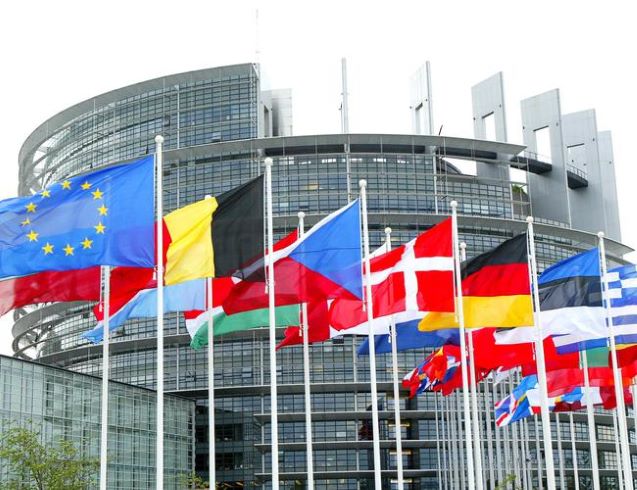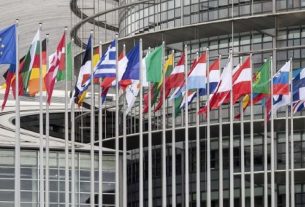More money is needed to maintain funding for the war in Ukraine, as well as the bloc’s migration policy.
In a rare step, the European Commission has asked member states to contribute billions more in euros to top-up the EU’s budget for the next four years.
The extra money is needed to cover gaps in the bloc’s long-term accounting left by unforeseen crises, such as the pandemic, inflation and the war in Ukraine.
Speaking to reporters on Tuesday, the European Commissioner for Budget and Administration, Johannes Hahn, said the decision to request more funds followed consultations with member states.
“My message to prime ministers and finance ministers was clear: If we want to be a serious political and economic player at a global level, we need more resources,” Hahn said in Brussels
Brussels’ top priority is Ukraine, for which an additional €50 billion is being requested. The Commission wants to help balance the war-torn country’s budget up to and through 2027, but also to kick-start reconstruction efforts once the conflict ends and plans to do that with €33 billion given in loans and €17 billion in grants.
An extra €15 billion cash injection has also been earmarked for migration and neighbourhood policies, which means more money for third countries to keep migrants in or take them back.
The executive also said it plans to reallocate €10 billion from existing pots of money to boost investment in strategic technologies and shore up the bloc’s economic resilience and competitiveness under a programme called STEP (Strategic Technologies for Europe Platform).
This money will fund projects in deep tech, clean tech and bio tech that will also be fast-tracked.
“All in all, we expect, with leveraging and crowding in of private capital – this is crucial –, that this will result in an investment capacity of €160 billion,” Commission chief Ursula von der Leyen told reporters.
Yet, even before the official announcement, the Commission met stern opposition from countries like Germany and the Netherlands, unwilling to pay up for anything except Ukraine.
For Margarida Marques, a Portuguese MEP from the Socialist & Democrats Group, negotiations with member states are likely to be tough.
“This is a negotiation. So, we need fresh money because there are new initiatives,” she told Euronews.
“It’s our challenge. It means we need to negotiate.”
The Commission remains optimistic, however, and hopes to come to an agreement with the Council and the Parliament by mid-November.__Courtesy EuroNews





